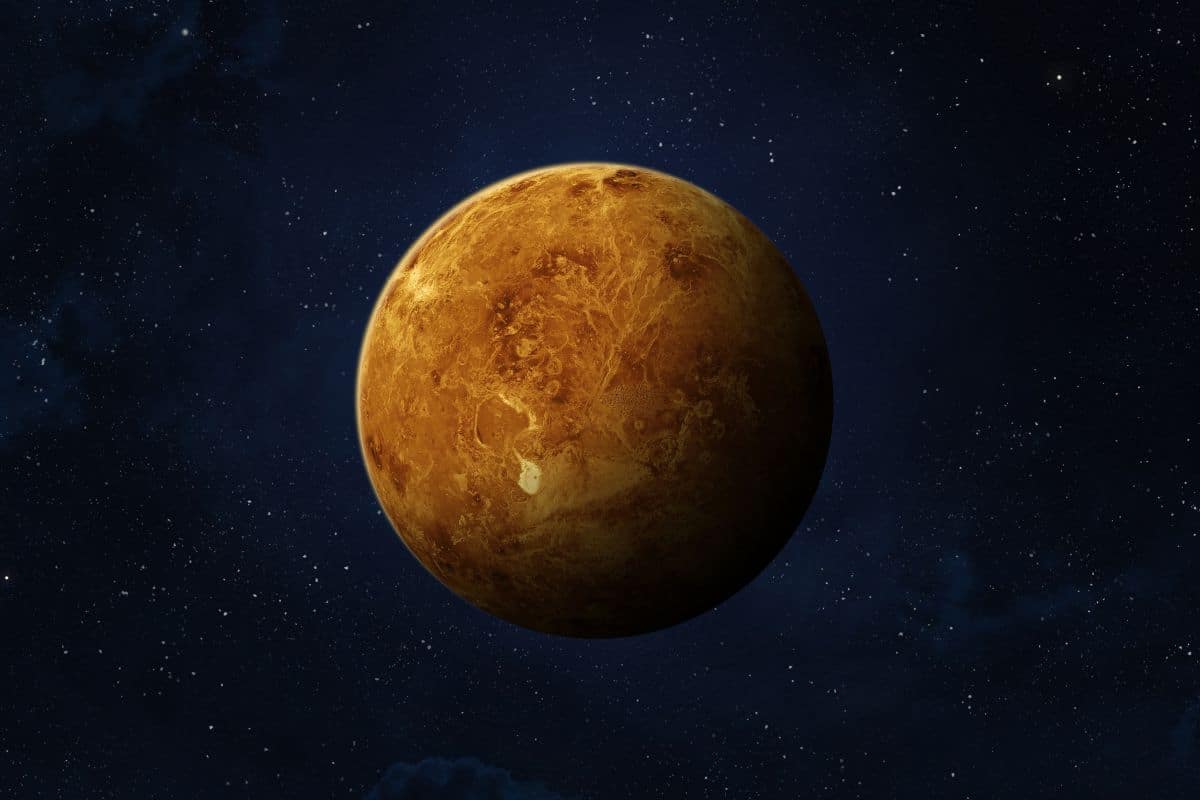For hundreds to thousands of centuries, Venus was probably destroyed by devastating volcanic eruptions, turning our “twin sister” into the acid greenhouse that it is today.
That Venus is an inhospitable planet is almost an understatement. The average surface temperature is about 465 degrees Celsius, it rains sulfuric acid and the air pressure is 90 times higher than on Earth. Researchers are still baffled as to how a planet so similar to Earth in so many ways could turn into such a hostile world. a New study Now lift a corner of the veil.
Sisters
You might not think it right away, but Earth and Venus have a lot in common. For example, they are both rocky planets and have approximately the same size, mass, and density. Additionally, some scientists believe that Venus may have been the first habitable planet in our solar system, complete with an Earth-like ocean and climate. But now nothing can be seen from it. Venus has turned into a hellish place. There is no water and the thick atmosphere forms a very insulating layer which causes a strong greenhouse effect. Earth and Venus, once like sisters, eventually evolved along very different paths.
You could say that Venus experienced a very strong greenhouse effect, causing climate change to get completely out of control. But what is the basis for that? Researchers believe it can be traced back to Venus’ volcanic past. The surface of Venus is covered with volcanoes. In fact, there are more volcanoes on the surface of the planet than on any other planet in our solar system!

A 3D computer-generated image of Maat Mons, a Venusian shield volcano. Lava flows appear in the foreground and stretch for hundreds of kilometers. Image: NASA/JPL
Soil
To clarify whether these volcanoes did indeed trigger a strong greenhouse effect at some point in the distant past, the researchers decided to take Earth as an example. “Large fields of solid igneous rock cover a total of 80 percent of the surface of Venus,” said study co-author Michael Way. “Although we are not yet sure how these fields came to be, we may be able to find the answer in our own Earth history.”
mass extinctions
Earth has suffered at least five major mass extinctions since the emergence of multicellular life about 540 million years ago. It is estimated that at least 50 percent of life died in each of them. Previous studies have shown that most of these mass extinctions were caused or at least exacerbated by volcanic eruptions. However, in the case of Earth, these eruptions were not enough to cause a runaway greenhouse effect. But it might have happened on Venus.
Venus
According to the researchers, this could explain why Venus has become an uninhabitable place. They suspect that Venus was destroyed by devastating volcanic eruptions for hundreds to thousands of centuries. Since this happened over a relatively short geological time period (within a million years), it likely triggered a runaway greenhouse effect. He transformed this planet from a humid, temperate world into the acidic greenhouse it is today.
Expeditions to Venus
Although this seems reasonable, researchers are cautious. It is hoped that two upcoming NASA missions will confirm or disprove this theory in the near future. By the end of this decade — sometime between 2028 and 2030 — Launch DAVINCI+ and VERITAS, two space probes that will hopefully provide more insights into how Venus turned out to be today’s wild world. “The primary goal of DAVINCI is to explore the evolution of water on Venus in greater depth,” Way says. “I hope we will also find out when it disappeared. That will tell us a lot about how the climate of Venus has changed over time.”
DAVINCI’s mission precedes Veritas; An orbiter designed to explore the surface and interior of Venus. Because if we knew more about the features of the surface, we would also be able to trace the geological history of the planet. Ultimately, the researchers hope that both missions will lead to a complete picture of Venus’ hellish transition to a dry, hot climate. This information is also useful to the Earth. Because if volcanic eruptions are indeed the culprits, it will expand our knowledge of how terrestrial volcanoes affected life in the past — and whether this trend will continue in the future.

“Lifelong zombie fanatic. Hardcore web practitioner. Thinker. Music expert. Unapologetic pop culture scholar.”








